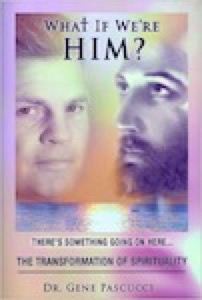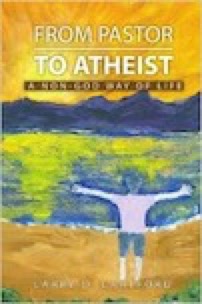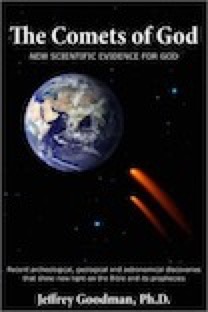Religion
ForeWord Review - What If We're Him
December/18/2015 01:44 PM Filed: ForeWord Reviews

Pascucci’s open-minded evaluation of narrow-minded doctrine suggests that we implement the positive power that lives within us all. He asserts that our own conscious presence is our sense of God. Though far from an atheist, his work may not appeal to everyone, especially not to those who have committed to a particular religious canon and creed. Instead he will attract optimistic individuals who seek an alternative to rigid conviction established in another time. This author dares to analyze the logic behind faith-based institutions.
ForeWord Review - From Pastor to Atheist
April/08/2015 03:09 PM Filed: ForeWord Reviews

In this revealing look at a former Lutheran minister’s ordeal with the church, Cartford asserts that eternal life is not for a privileged few, but the destiny for everyone. Religion, he believes, promotes the god it creates, instills fear, divides people, and controls behavior. Though he professes himself to be an atheist, what he really seeks is not a void, but an alternative world filled with peace, beauty, and openness. Centered on inherent spirituality, he asserts that truth is known through reason, not revelation.
ForeWord Review - A Swedenborg Sampler
January/17/2014 03:19 PM Filed: ForeWord Reviews

Emanuel Swedenborg (1688-1772) was an eighteenth-century Swedish theologian whose writings formed the basis for a fascinating offshoot of the Christian church. His interpretations go against fundamentalist doctrine and literal acceptance of the Bible. This book contains selections from five of his works that the translators have deemed appropriate for a mainstream audience. The meticulous presentation is informative and mesmerizing.
ForeWord Review - The Comets of God
August/30/2013 09:25 AM Filed: ForeWord Reviews

Goodman proposes that comets made an appearance in the Old Testament of the Bible and states that cometary activity will change the Earth during a bombardment. Though his work is scientific, detailed doomsday scenarios place the book into religion, since he is defining events that have not occurred and may not occur in a literal context. This analysis will attract the reader predisposed toward the Christian church and fundamental teachings, opposed to the evolutionist who integrates belief with Darwinian-based science. The author’s analysis of the Book of Revelations proposes that biblical writings can forecast our future, a concept many scientists will reject.